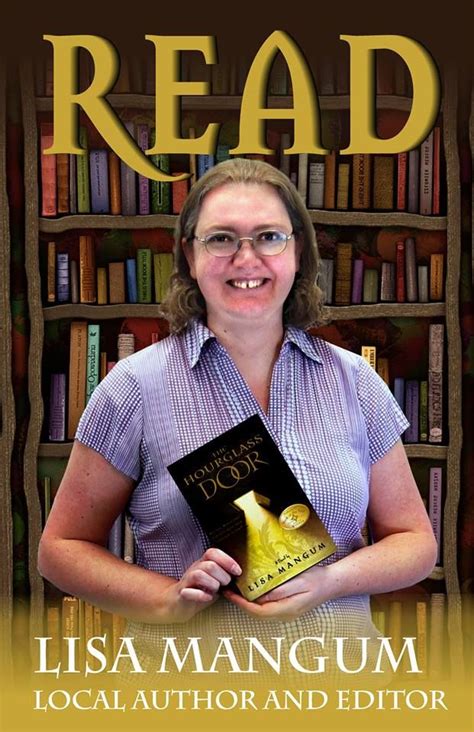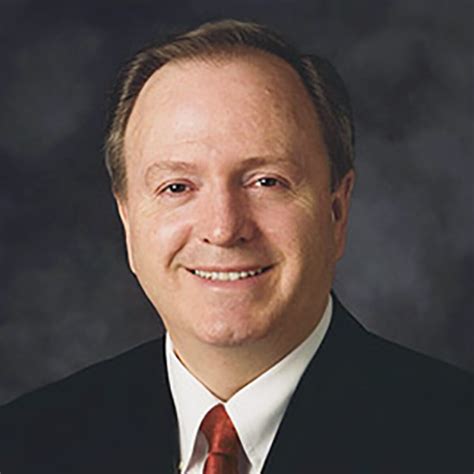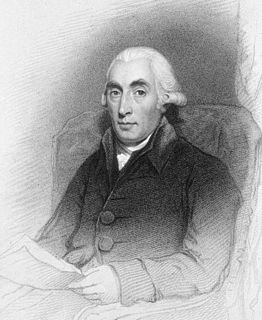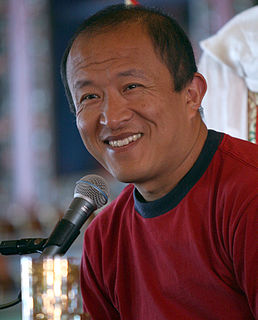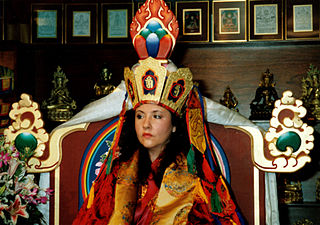A Quote by Sogyal Rinpoche
. . . when the nature of mind is introduced by a master, it is just too simple for us to believe. Our ordinary mind tells us this cannot be, there must be something more to it than this. It must surely be more "glorious", with light blazing in space around us, angels with flowing golden hair swooping down to meet us, and a deep Wizard of Oz voice announcing, "Now you have been introduced to the nature of your mind." There is no such drama.
Related Quotes
The river is now. This moment. This breath between us. The space between your heartbeats. The moment before you blink. The instant a thought flashes through your mind. It is everything that is around us. Life. Energy. Flowing, endlessly flowing, carrying you from then...to now...to tomorrow. Listen: you can hear the music of it. Of the passage of time.
Devotion {to the spiritual master} becomes the purest, quickest, and simplest way to realize the nature of our mind and all things. As we progress in it, the process reveals itself as wonderfully interdependent: We, from our side, try continually to generate devotion; the devotion we arouse itself generates glimpses of the nature of mind, and these glimpses only enhance and deepen our devotion to the master who is inspiring us. So in the end devotion springs out of wisdom: devotion and the living experience of the nature of mind becomes inseparable, and inspire one another.
Education doesn’t make you happy. Nor does freedom. We don’t become happy just because we’re free – if we are. Or because we’ve been educated – if we have. But because education may be the means by which we realize we are happy. It opens our eyes, our ears, tells us where delights are lurking, convinces us that there is only one freedom of any importance whatsoever, that of the mind, and gives us the assurance – the confidence – to walk the path our mind, our educated mind, offers.
Too many believe that love is a condition, a feeling that involves 100 percent of the heart, something that happens to you. They disassociate love from the mind and, therefore, from agency. In commanding us to love, the Lord refers to something much deeper than romance - a love that is the most profound form of loyalty. He is teaching us that love is something more than feelings of the heart; it is also a covenant we keep with soul and mind.
To find this greater truth about God, Spirit, and the sacred, we must often set aside the limiting impressions from our childhood. In many instances these images of fear only serve to hold us back in our search for authentic spirituality...Open up your mind and heart to a concept of Spirit who looks out for us, loves us, sheds light on our path, and wants nothing less for us than unconditional happiness.
Nature is purposeless. Nature simply is. We may find nature beautiful or terrible, but those feelings are human constructions. Such utter and complete mindlessness is hard for us to accept. We feel such a strong connection to nature. But the relationship between nature and us is one-sided. There is no reciprocity. There is no mind on the other side of the wall.
When we are young the idea of death or failure is intolerable to us; even the possibility of ridicule we cannot bear. But we have also an unconquerable faith in our own stars, and in the impossibility of anything venturing to go against us. As we grow old we slowly come to believe that everything will turn out badly for us, and that failure is in the nature of things, but then we do not much mind what happens to us one way or the other. In this way a balance is obtained.
What most of us need, almost more than anything, is the courage and humility really to ask for help, from the depths of our hearts: to ask for the compassion of the enlightened beings, to ask for purification and healing, to ask for the power to understand the meaning of our suffering and transform it; at a relative level to ask for the growth in our lives of clarity, peace, and discernment, and to ask for the realization of the absolute nature of mind that comes from merging with the deathless wisdom mind of the master.
With us the inner nature accords with the outer expectation. The body follows the mind, and the mind seeks the soul, which it strives toward but has not yet won. With you it is otherwise. The mind follows the body in pursuit of the soul you have been told you already have. Because you cannot find it, you assume you have lost it somewhere in your past, and this keeps you from achieving it in your future.
Upon the whole, Chymistry is as yet but an opening science, closely connected with the usefull and ornamental arts, and worthy the attention of the liberal mind. And it must always become more and more so: for though it is only of late, that it has been looked upon in that light, the great progress already made in Chymical knowledge, gives us a pleasant prospect of rich additions to it. The Science is now studied on solid and rational grounds. While our knowledge is imperfect, it is apt to run into error: but Experiment is the thread that will lead us out of the labyrinth.



